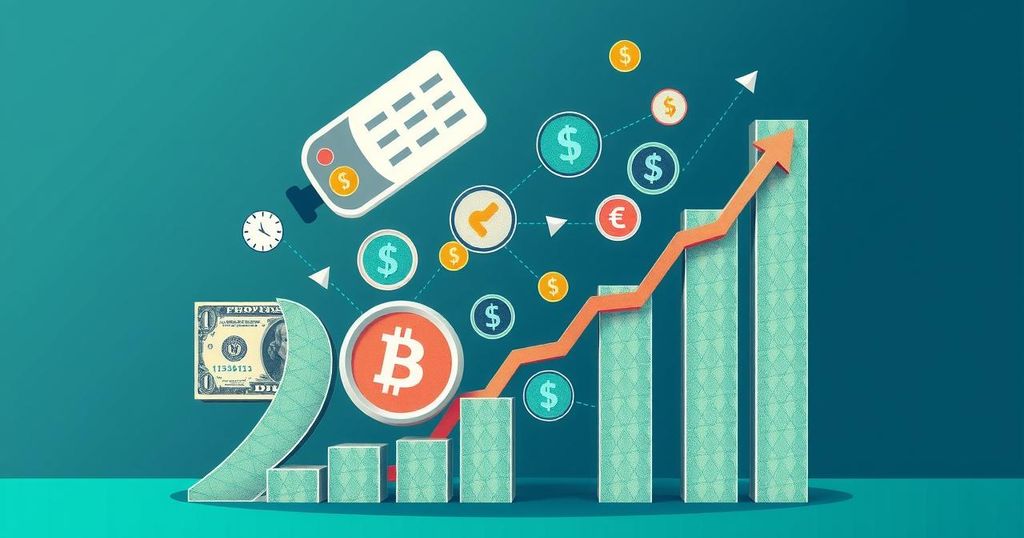In 2024, Nigeria spent $2.32 billion on debt servicing to the World Bank and IMF, a sharp increase from $998.92 million in 2023. Total external debt servicing reached $4.66 billion, primarily driven by multilateral repayments. Nigeria’s total external debt stock rose to $45.78 billion, largely due to new World Bank borrowings. Despite a strategic shift towards equity investments, reliance on multilateral support persists.
In 2024, Nigeria allocated a total of $2.32 billion for debt servicing to the World Bank and International Monetary Fund (IMF), marking a notable increase from $998.92 million in 2023, according to the Debt Management Office. Specifically, Nigeria paid $689.44 million to the World Bank, which included $663.23 million to the International Development Association (IDA) and $26.21 million to the International Bank for Reconstruction and Development (IBRD). Meanwhile, debt servicing to the IMF reached $1.63 billion, comprising entirely of principal repayments with no interest or additional charges noted.
The total external debt servicing for Nigeria in 2024 amounted to $4.66 billion, a rise from $3.5 billion in the previous year. Payments to multilateral creditors represented the majority of this sum at $2.62 billion, which comprised 56 percent of the total servicing costs. Notably, the IMF’s share amounted to 35 percent of Nigeria’s total external debt servicing in 2024 and accounted for approximately 62 percent of payments made to multilateral lenders.
Although Nigeria’s commercial debt servicing decreased to $1.47 billion in 2024 from $1.93 billion in 2023, it was not sufficient to counterbalance the significant rise in payments to multilateral bodies, particularly the IMF. The IDA remained Nigeria’s largest multilateral creditor, with payments totaling over $663 million, which included $414.86 million in principal repayments.
The share of payments made to the IMF and World Bank increased significantly to 49.8 percent of Nigeria’s total external debt servicing in 2024, up from 27.8 percent in the previous year. This trend indicates a rising dependency on multilateral support, placing increased pressure on Nigeria’s fiscal environment, especially against a backdrop of fragile revenue generation and exchange rate pressures.
As of December 31, 2024, Nigeria’s external debt stock reached $45.78 billion, rising from $42.50 billion a year earlier, largely due to additional borrowings from the World Bank Group. The total amount owed to the World Bank increased to $17.81 billion, with the IDA’s share reflecting a 15.3 percent year-on-year rise.
Conversely, Nigeria’s obligations to the IMF significantly contracted, falling from $2.47 billion in 2023 to $800.23 million in 2024, a decrease attributed to repayments of prior emergency and budget-support disbursements. The World Bank’s loans constituted 79.8 percent of Nigeria’s total multilateral debt in 2024, an increase from 73.1 percent in the previous year, while the IMF’s share diminished considerably.
The combined debt obligations to the World Bank and IMF represented 83.4 percent of Nigeria’s multilateral debt in 2024, up from 82.4 percent in 2023, with these two institutions holding 40.6 percent of Nigeria’s total external debt stock. The rising reliance on concessional loans underscores Nigeria’s ongoing dependence on development financing to support essential initiatives.
In recent discussions at a Corporate Governance Forum, Nigeria’s Minister of Finance, Wale Edun, indicated a strategic shift toward prioritizing equity investments and public-private partnerships to optimize state-owned enterprises. Despite these intentions, Nigeria continues to rely on World Bank loans to fuel its reform efforts.
In conclusion, Nigeria’s debt servicing obligations to the World Bank and IMF have significantly increased in 2024, reflecting a growing dependency on multilateral financing. With total external debt servicing reaching $4.66 billion, the reliance on concessional loans from the World Bank highlights the ongoing challenges of revenue mobilization and economic stability. The government’s strategic pivot towards equity investments and partnerships seeks to alleviate reliance on debt, but the continual necessity for World Bank support remains evident.
Original Source: punchng.com






